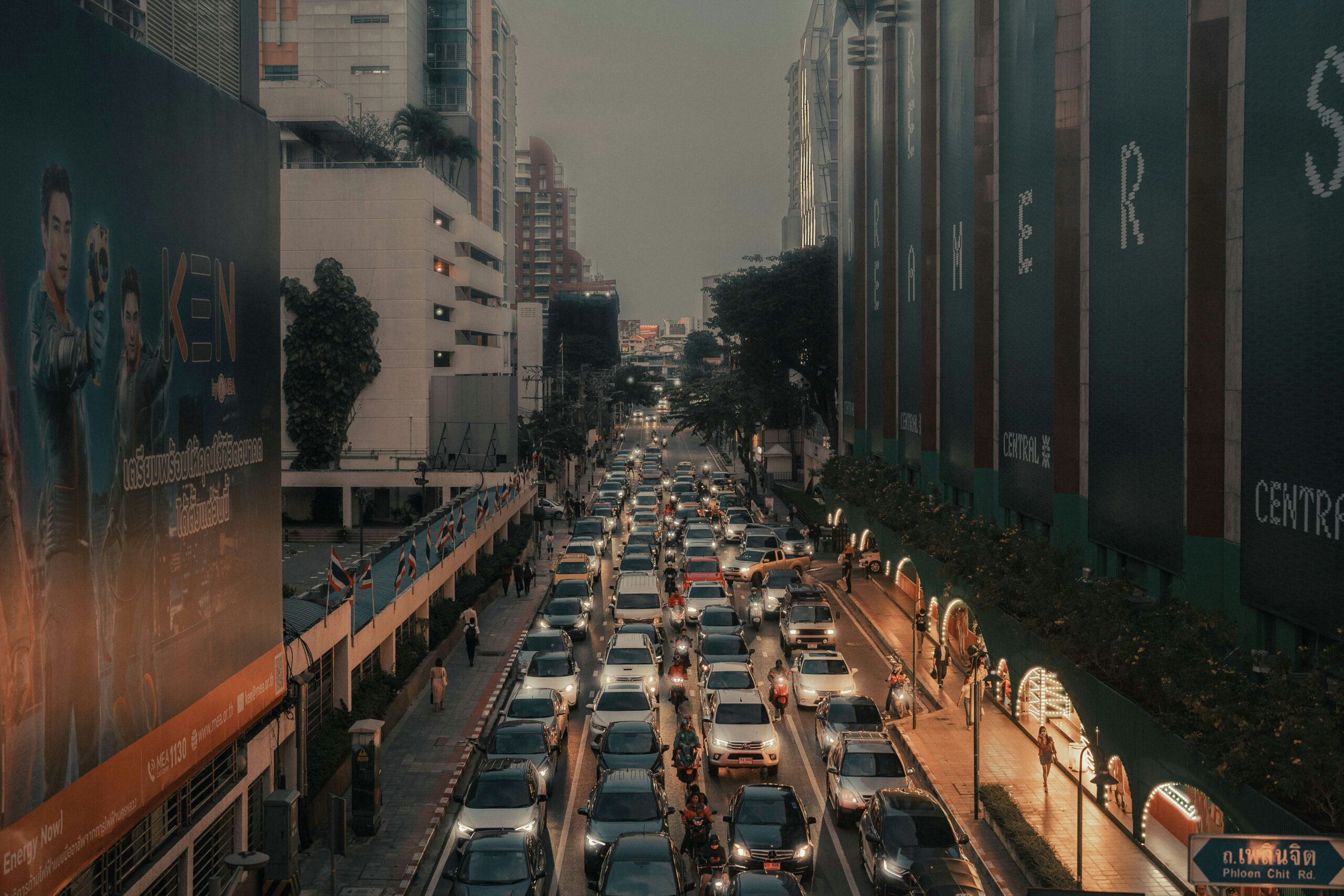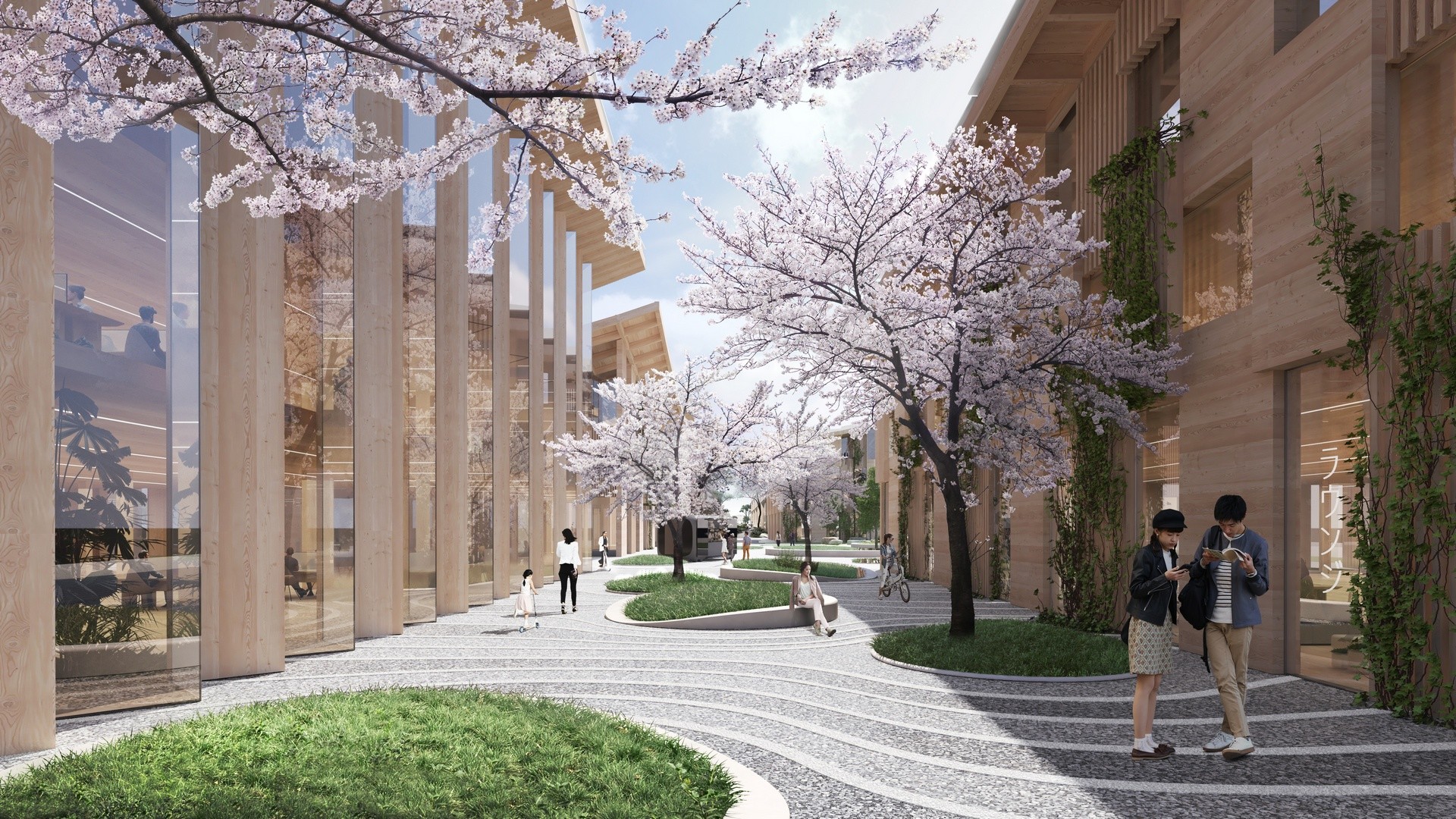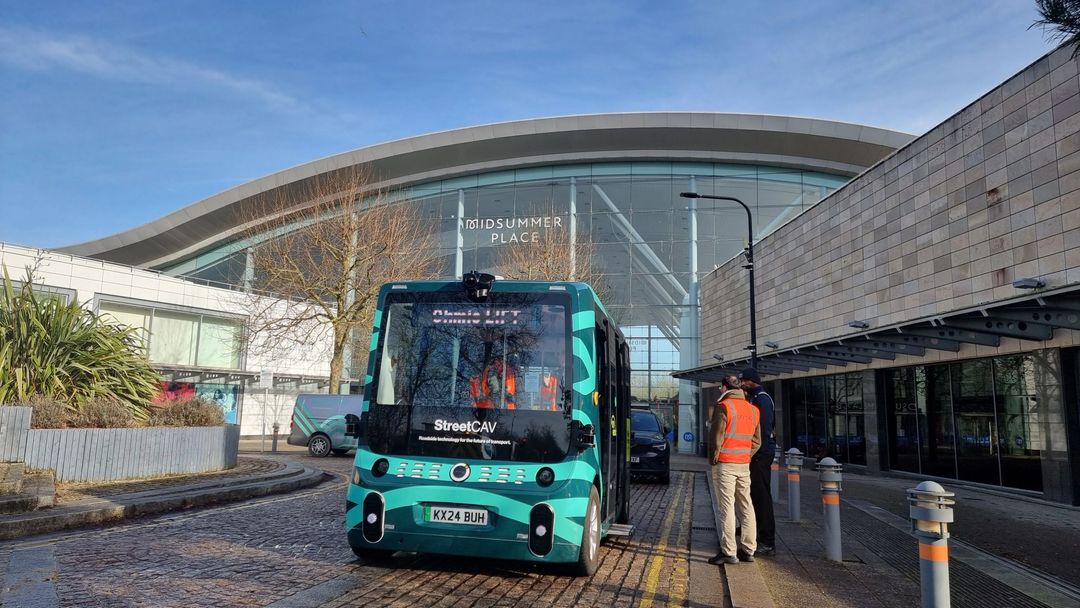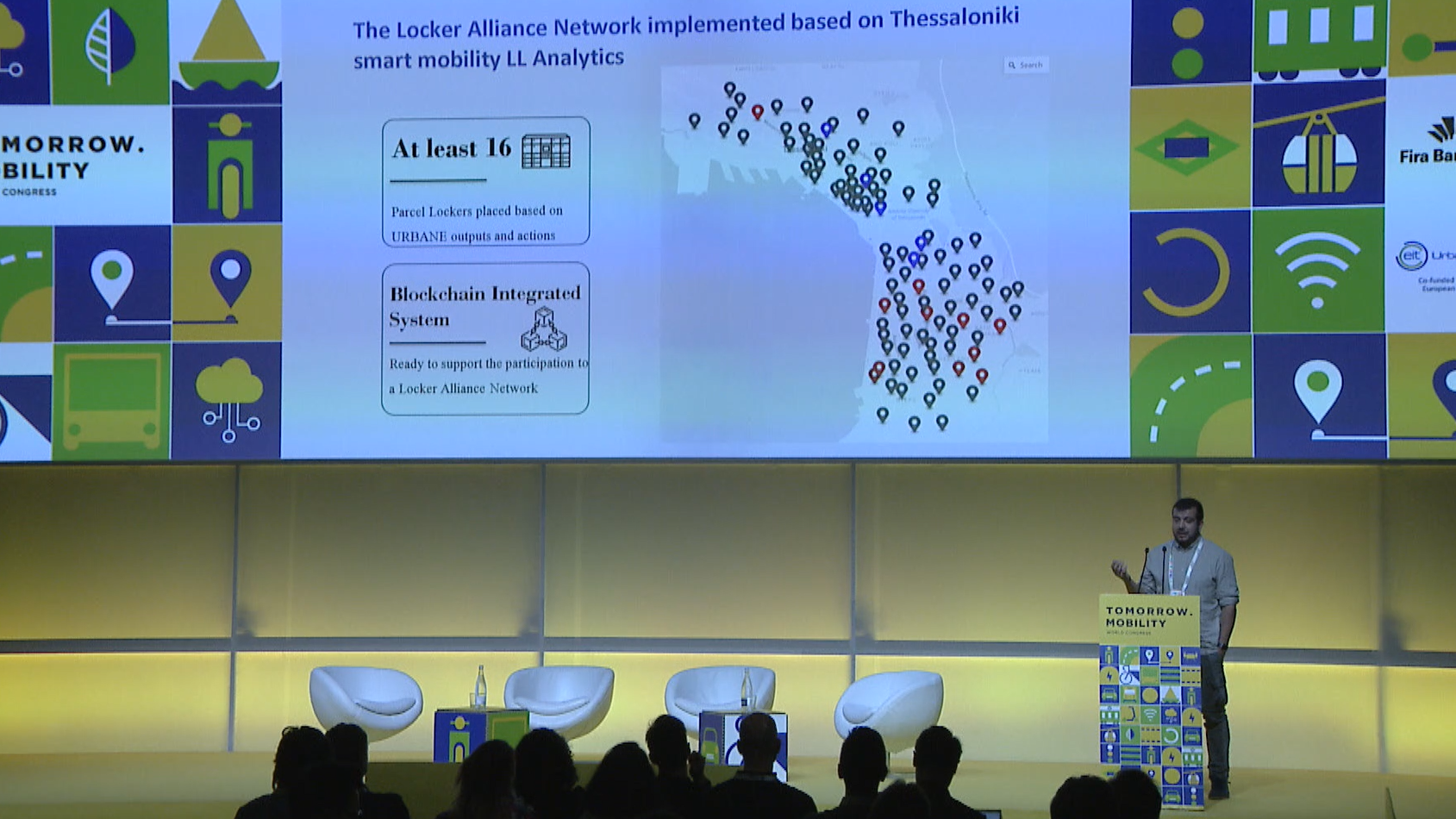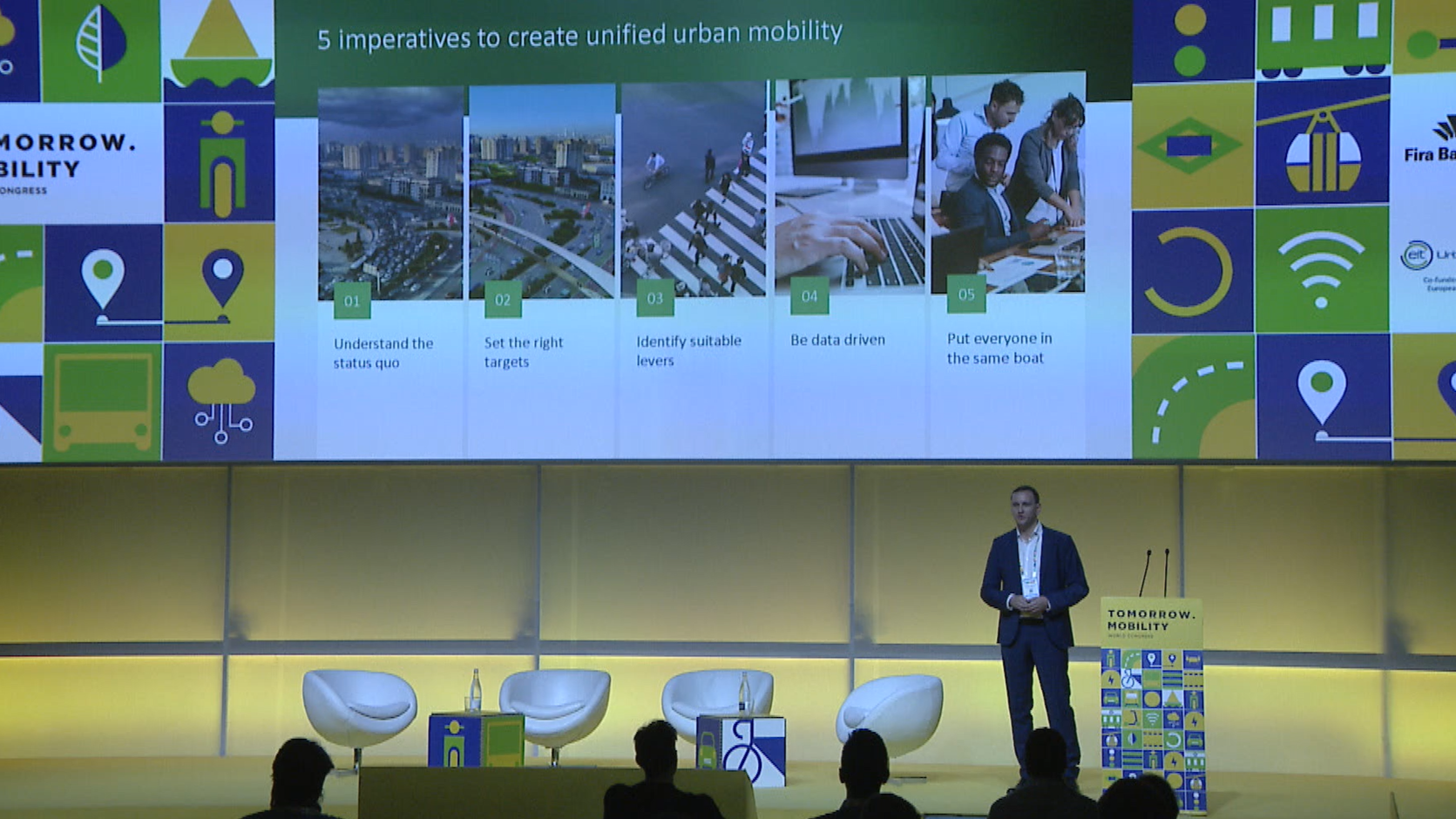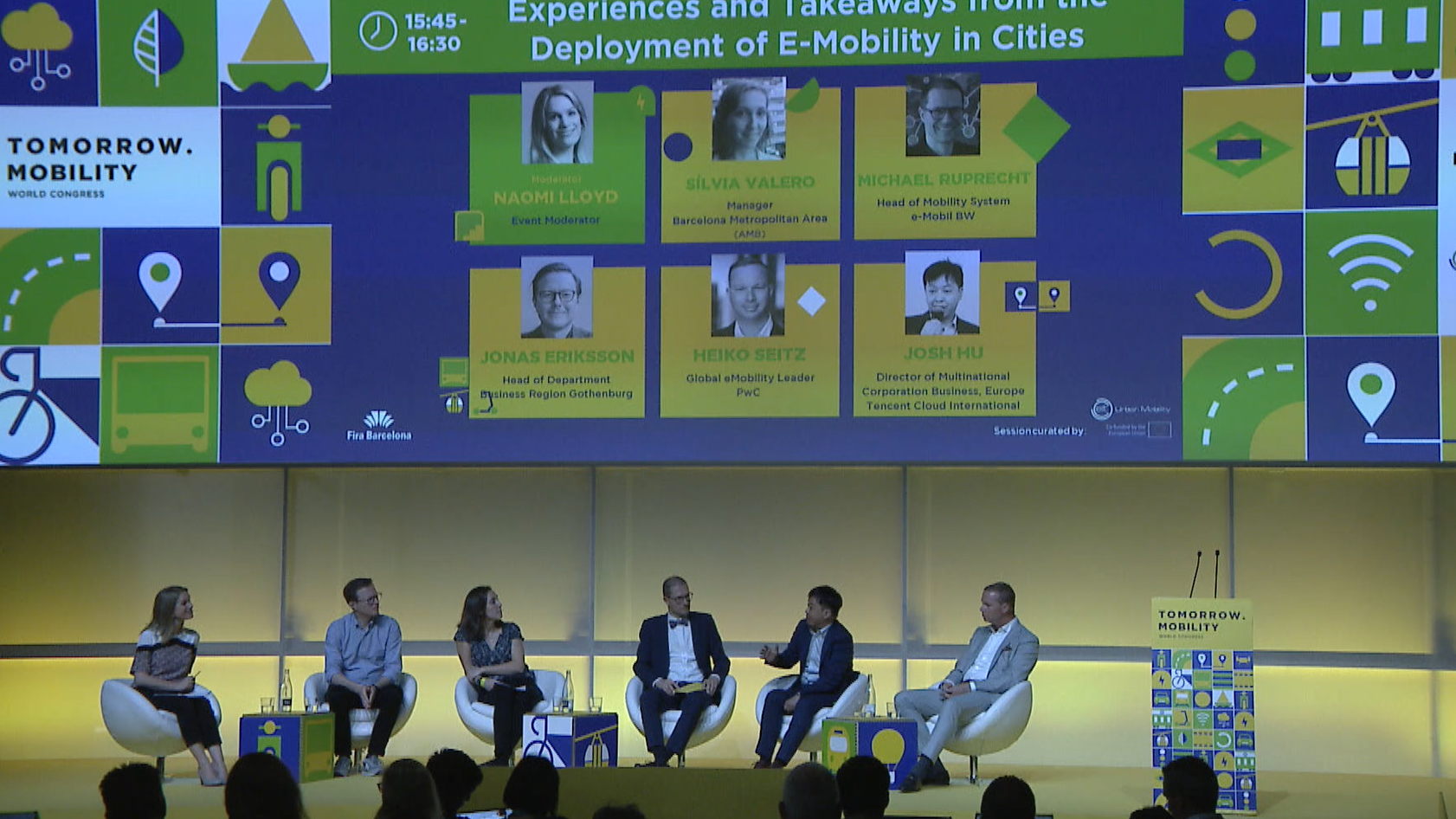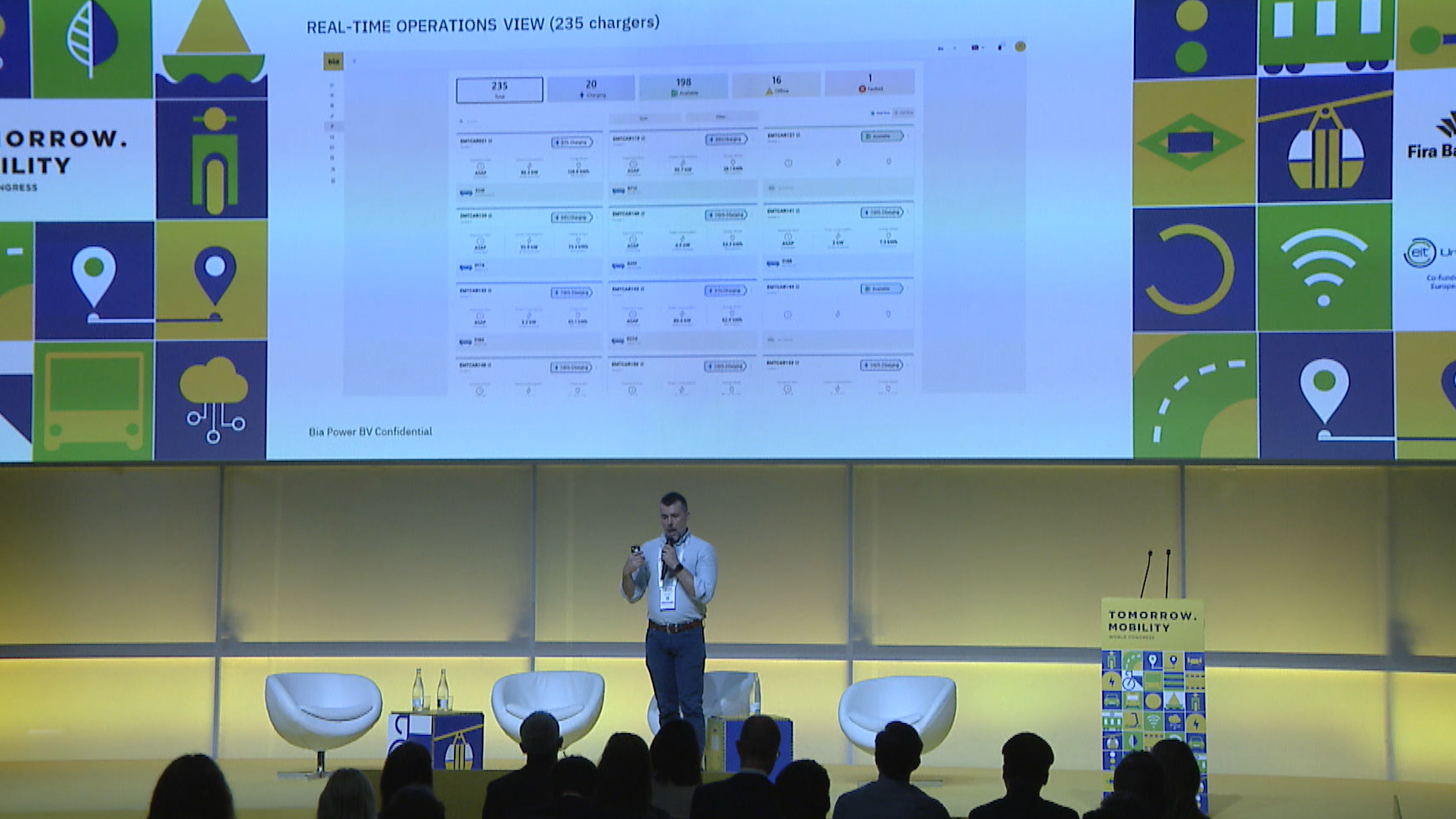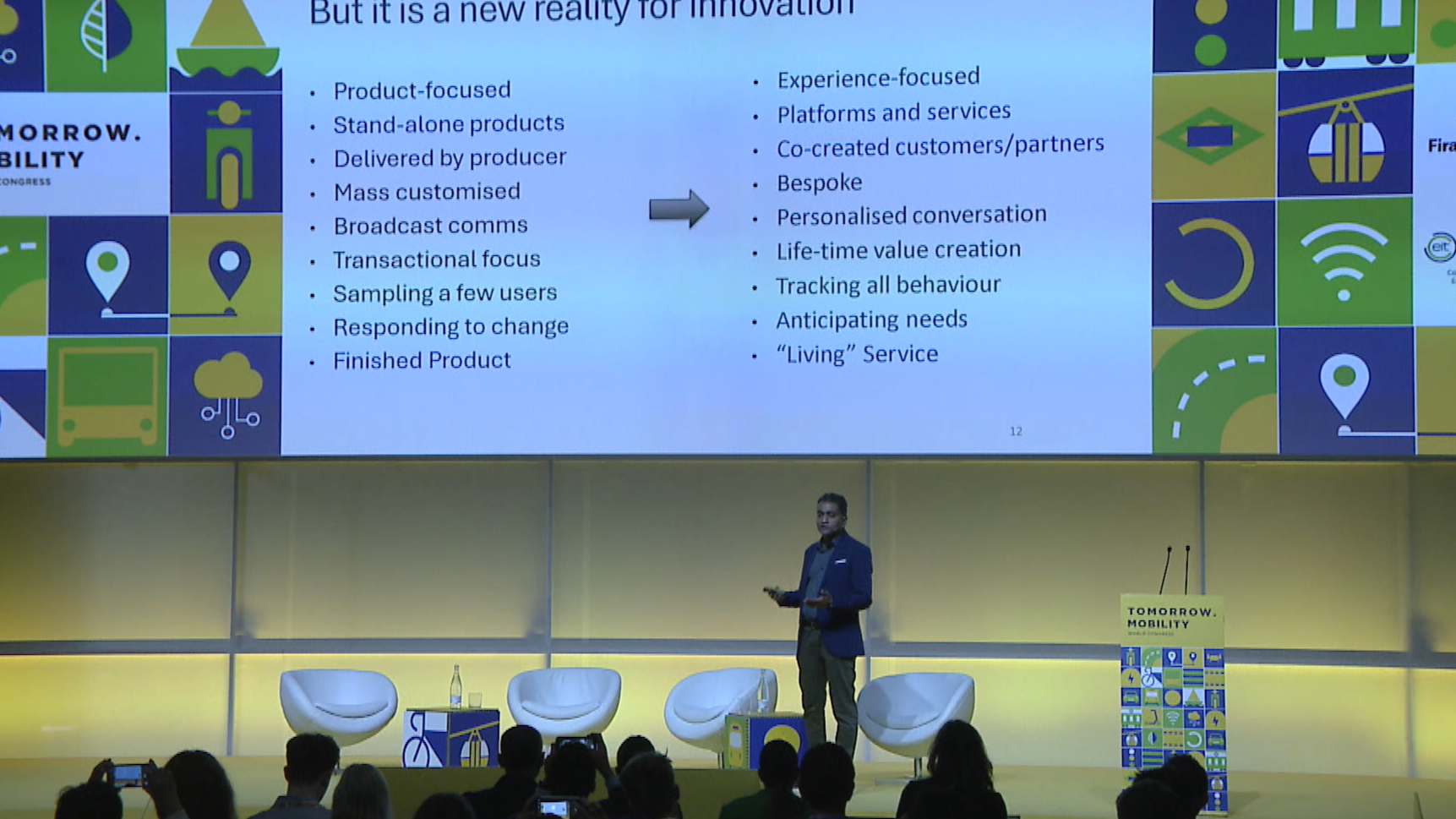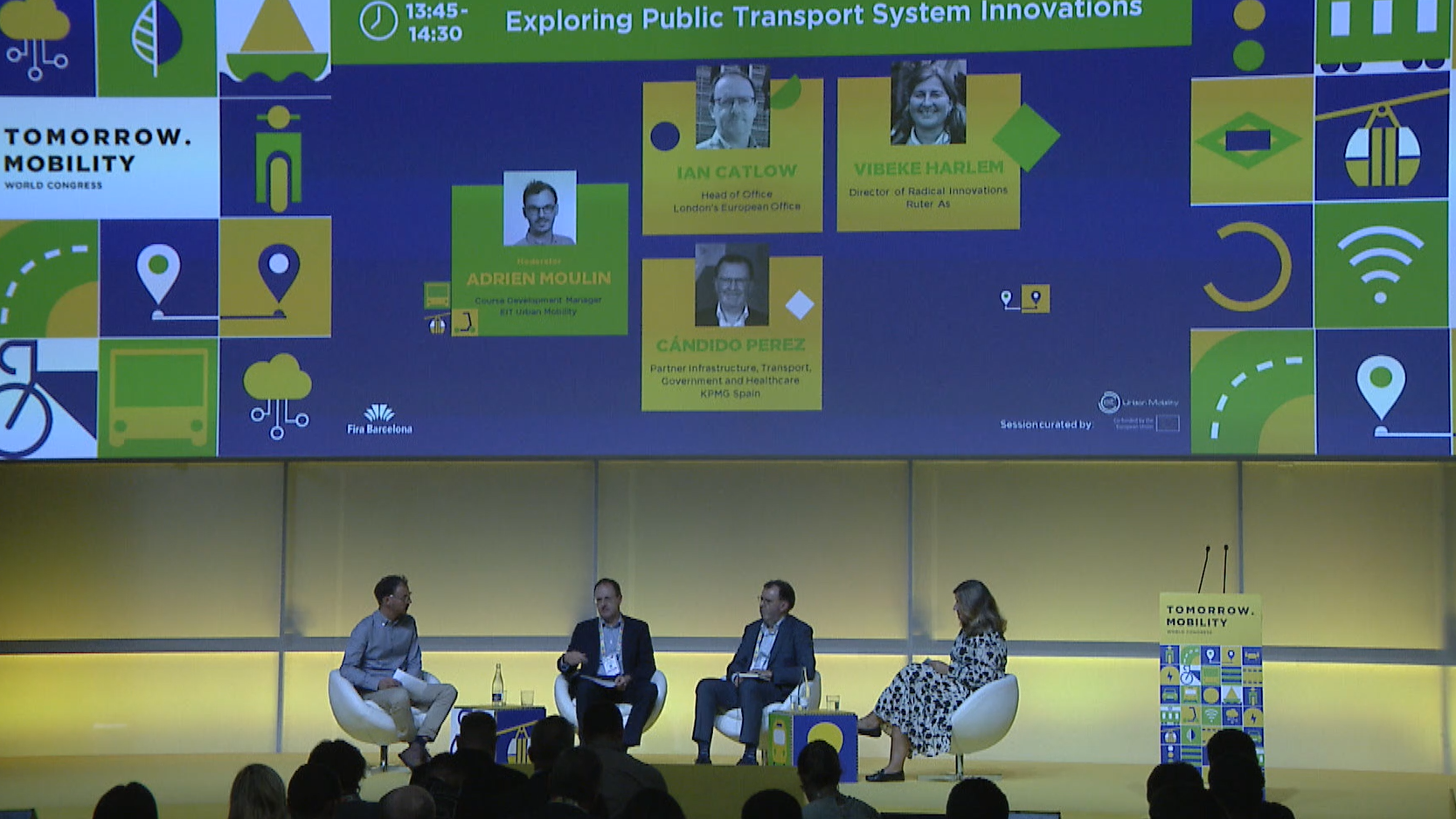Author | Lucía Burbano
Traffic jams not only cause fatigue, desperation and delays among drivers. While most vehicles continue to use fossil fuels, traffic congestion is co-responsible for air (and noise) pollution in cities, and also has a negative impact on people’s quality of life. Having a better understanding of urban traffic and finding solutions to traffic jams is now possible thanks to AI and IoT. This is how cities are managing traffic to achieve sustainable mobility.
IoT: Smart devices that reduce traffic congestion
Sensors for the Internet of Things (IoT) and embedded in GPS, cameras or radars have become a solution for car manufacturers and even drivers, since the data they collect improve the vehicle’s performance, the environment and contribute to road safety and efficiency.
One of the most significant advantages of this technology is its potential to reduce traffic congestion thanks to the communication established between the connected vehicles and the real time exchange of traffic data. This information allows driving to be adjusted to changing scenarios.
These vehicles also communicate with road infrastructure such as traffic lights and car parks, and they transmit information to these devices including the distance between one set of traffic lights and the next, which enables waiting times to be adjusted.
AI: The brain that manages traffic
If IoT devices collect traffic data, artificial intelligence (AI) is in charge of analyzing the data. This technology can identify patterns in the data provided and reduce road safety risks and recurring accidents, and also control some smart devices like those mentioned above.
Automatic distance recognition
Automatic distance recognition uses sensors like lasers, radars and cameras to detect the distance between a car and surrounding objects. It is one of the principles used in autonomous vehicles, since it can be applied to activate automatic braking that prevents the domino effect of slowing traffic down.
Greater route planning efficiency
AI-driven route planning in cities and countries allows efficient, sustainable and economically feasible routes to be identified and used. Not just for private vehicles, but also for managing last mile delivery or potential emergencies.
Less polluted cities thanks to technology

Jakarta
In February 2023, the global traffic classification agency, Tomtom International BV, placed Jakarta’s traffic index at 29th in the 2022 congestion index, which was an improvement with respect to the classification for the previous year, when the Indonesian capital occupied the 46th position on the list.
What is behind this improvement? Among the measures implemented by Jakarta’s provincial government to improve traffic congestion, is the application of AI in its smart traffic light system, which is regulated automatically based on traffic density. The denser the traffic, the faster the traffic light changes to green, while, if the traffic is flowing relatively well, the red light remains on for longer.
Istanbul
Often included in the list of the worst cities in the world in terms of traffic, leaders in the Turkish capital decided to improve this bad reputation with the help of technology. Thanks to the installation of an analytical platform based on SAS and AI, the city can now assess road traffic, optimize public transport, manage traffic accidents and, in short, access real time information about traffic conditions in Istanbul and act accordingly.
Photographs | Unsplash/shun idota, Unsplash/Jens Herrndorff








